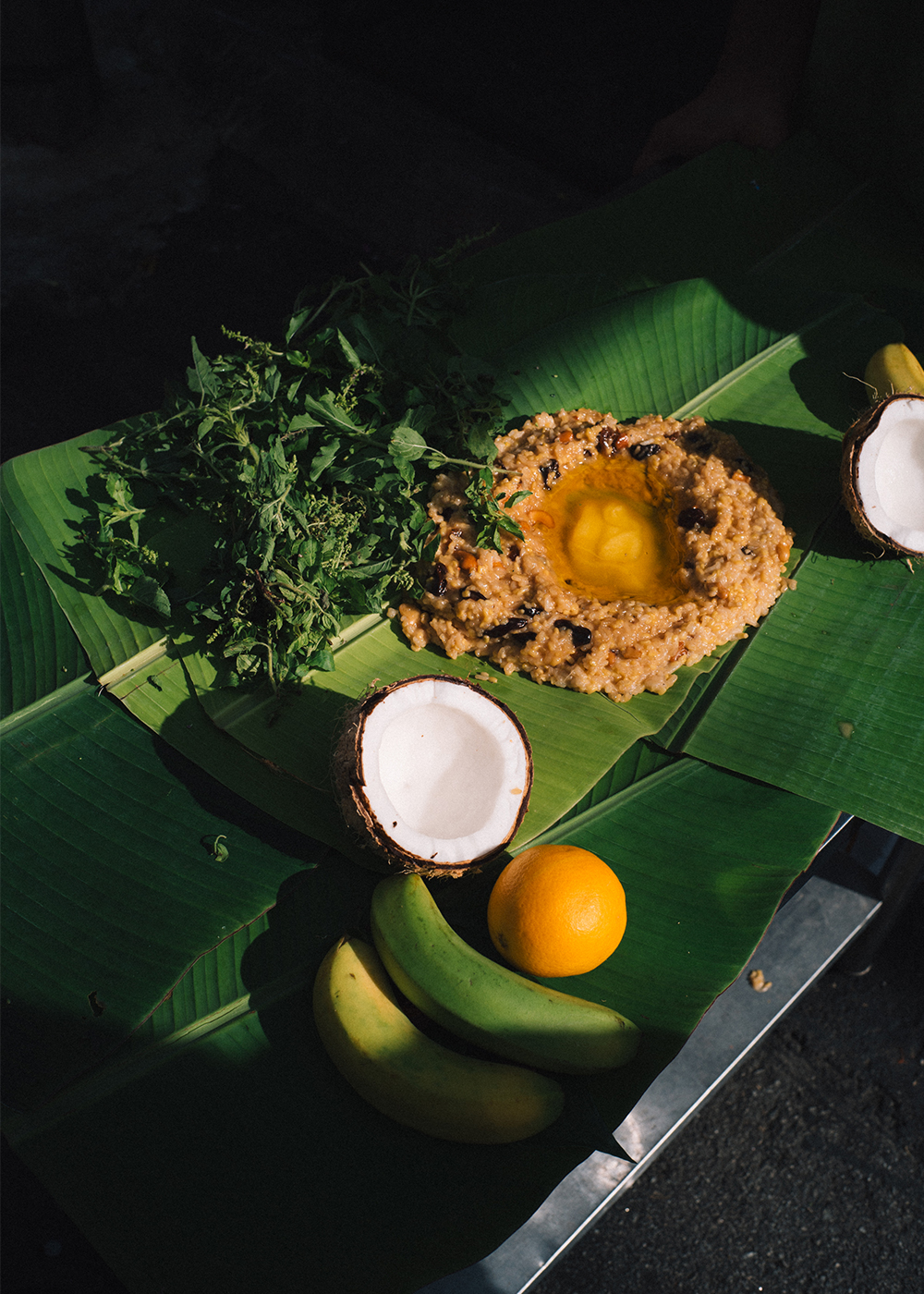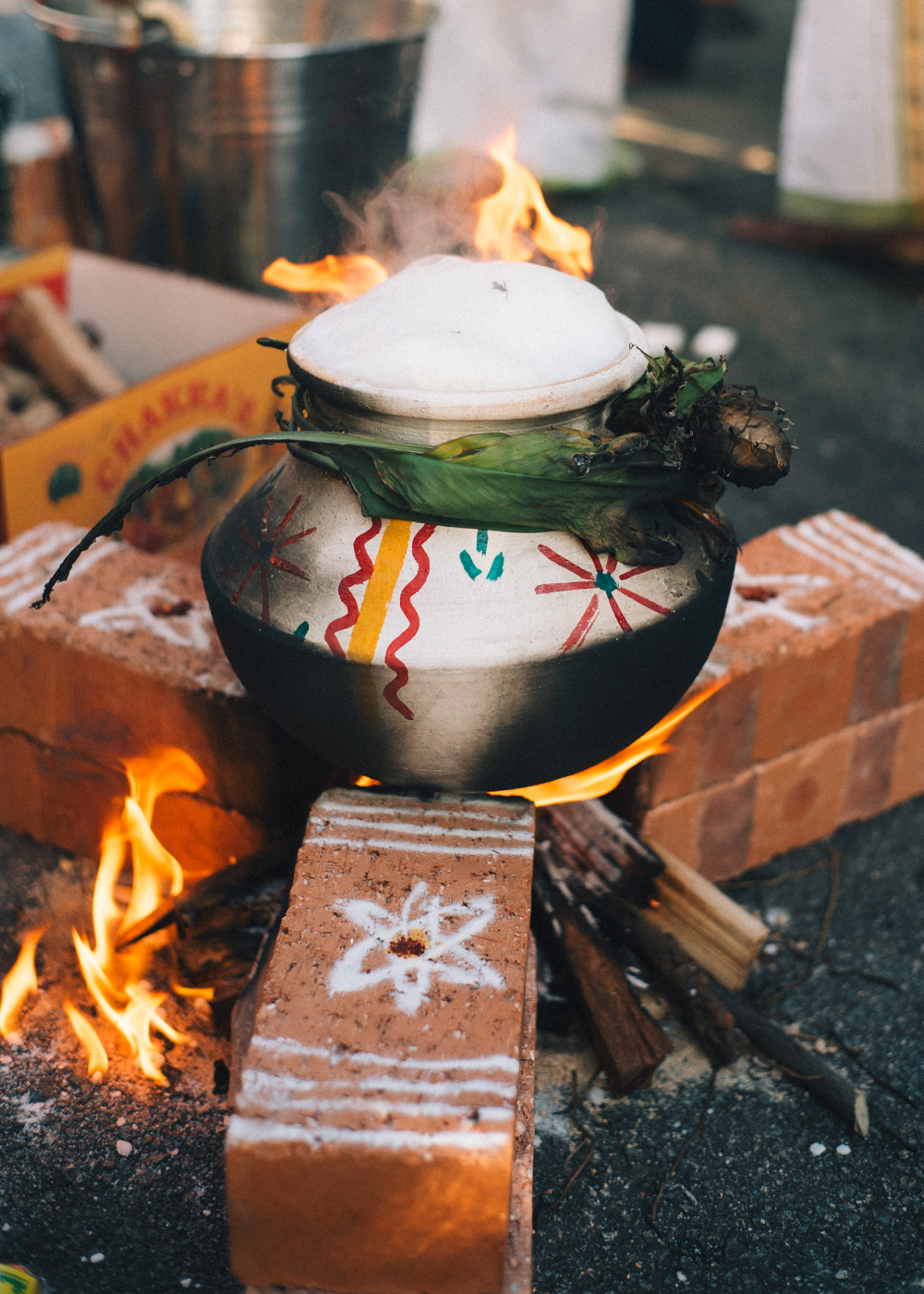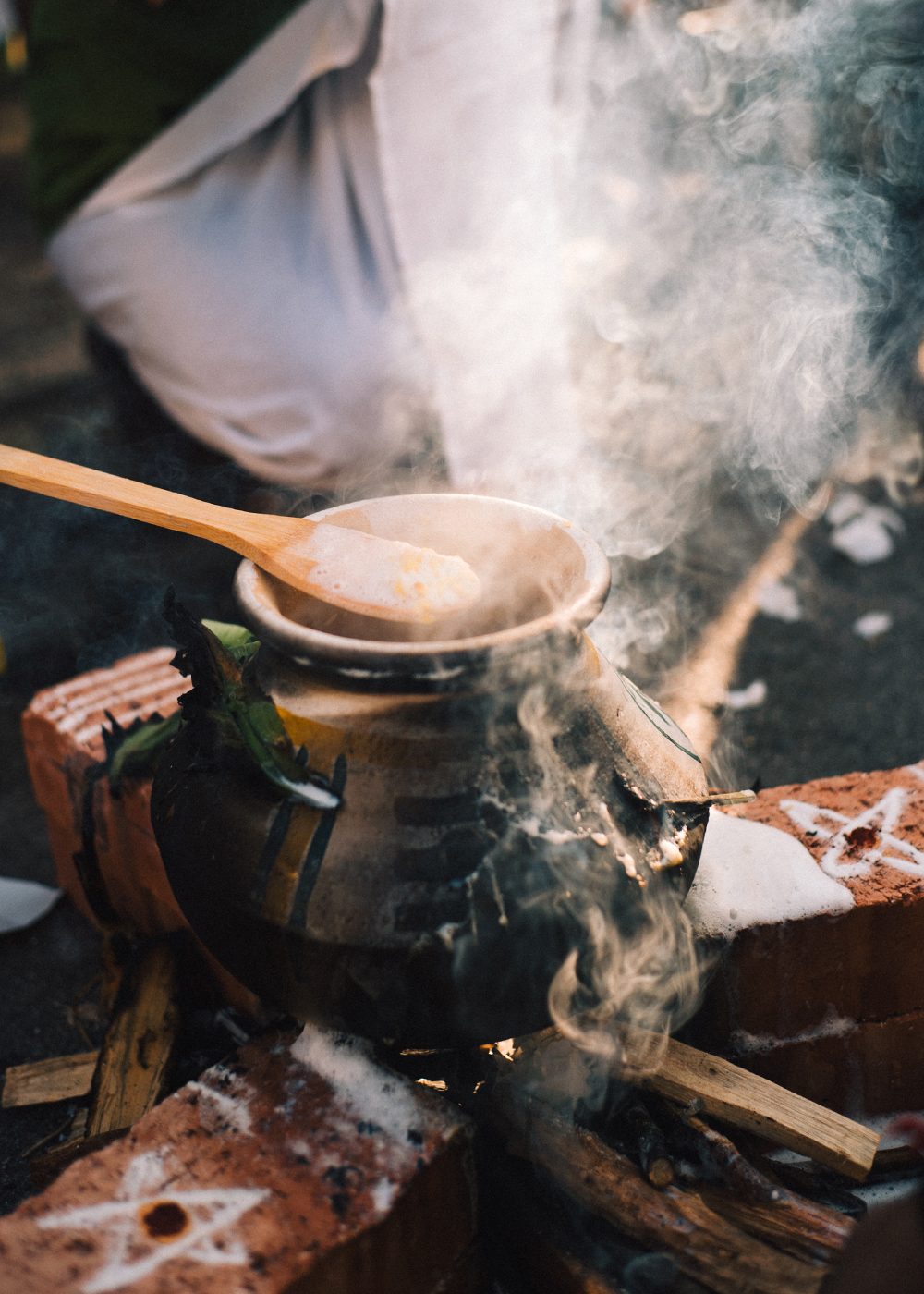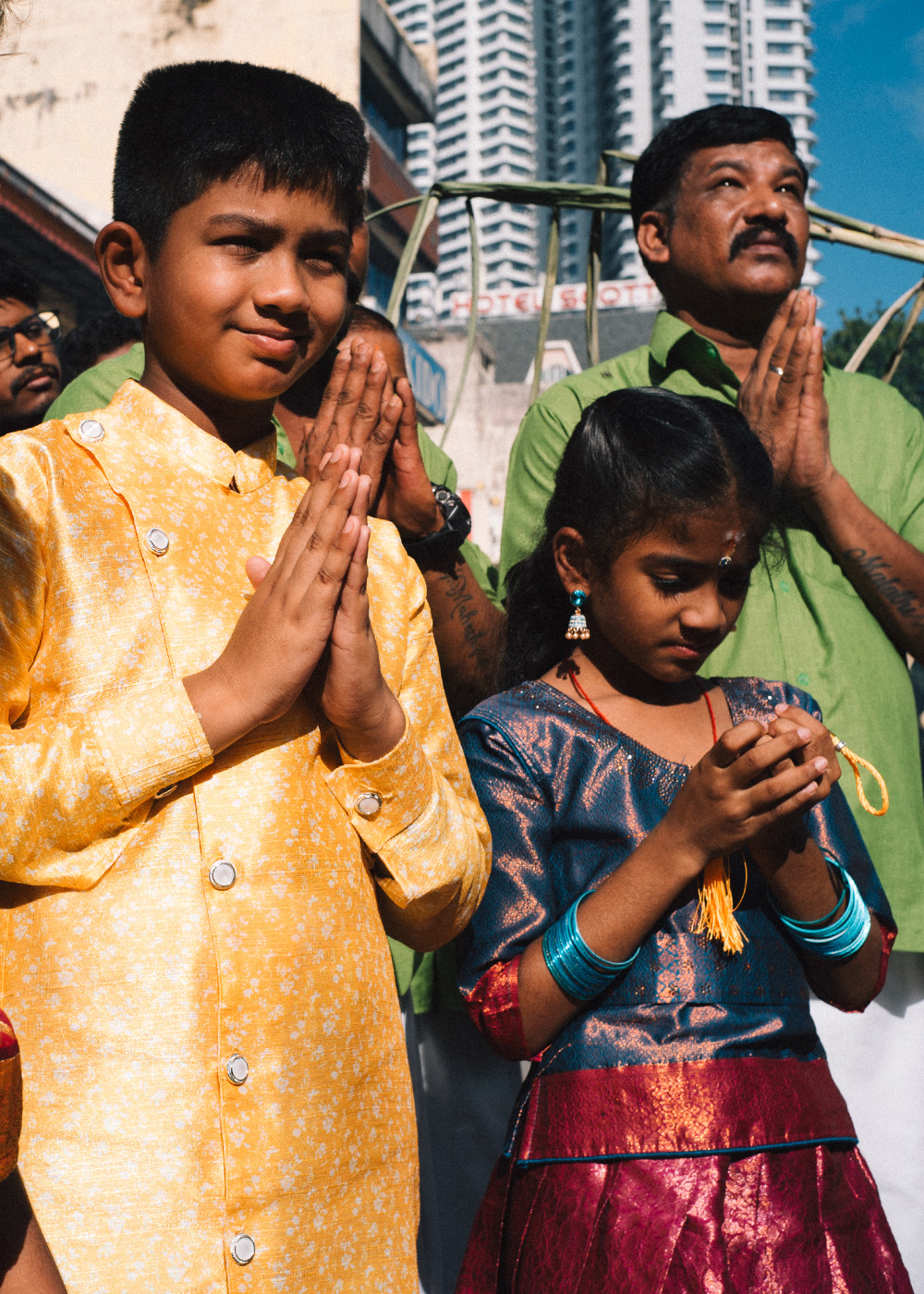Have you noticed anything different this morning? Perhaps your Indian neighbours outside their homes with colourful claypots and sugarcane stalks tied above them in a triangular stand? This signifies the arrival of Pongal, the vibrant harvest festival celebrated by the Tamil community.
It’s a time for expressing heartfelt gratitude for the abundance of nature, specifically thanking the Sun, the Earth, and the animals that contribute to a successful harvest. The celebration unfolds over four days and coincides with the start of Thai, a month considered particularly auspicious in the Tamil calendar. Typically, this falls on the 14th or 15th of January.
Now that the basics of Pongal are under your belt, here are five interesting facts you should know about this vibrant harvest festival.
‘Pongal’ is derived from the Tamil word, ‘pongu’

The festival shares its name with a special dish, a sweet, creamy concoction of boiled rice, traditionally prepared and enjoyed during this time. The name ‘Pongal’ itself is derived from the Tamil word ‘pongu,’ meaning ‘to boil over,’ which reflects the tradition of boiling over a pot of sweet rice during the festivities.
The direction in which the milk overflows foretells the year’s fortune

When a new claypot filled with rice, milk, and jaggery is heated over an open fire, excitement fills the air. The mixture begins to boil, and as it overflows, people joyfully shout ‘Pongalo Pongal’ – the overflowing symbolising the prosperity they hope for in the year ahead. While an overflow in all directions is considered the most auspicious sign, promising a year of balanced well-being, a spill towards the East is traditionally seen as the most fortunate. This is because the East, where the sun rises, symbolises new beginnings and growth.
Sakkara pongal is the traditional Pongal delicacy

Savoury versions of Pongal, like melagu pongal (pepper pongal), are common breakfast or tiffin items. However, it is sakkara pongal that captures the essence of the celebration. The rich, earthy flavour of jaggery used in its preparation symbolises prosperity and the sweetness of life. Moreover, many cultures, including those in South India, traditionally favour sweet dishes for divine offerings. Thus, sakkara pongal is made with care, offered to the Sun God, and shared among loved ones as an expression of thanks during Pongal.
Pongal is a vibrant four-day celebration

The festivities began yesterday (13 January) with Bhogi Pongal. This day is all about fresh starts, a symbolic cleansing of both the home and the spirit. Traditionally, bonfires are lit, and people discard old belongings into the flames, representing a release of the past and any negativity to welcome a new beginning. It’s a ritual reminding us to let go of what no longer serves us. However, in Malaysia, this practice is adapted to be more environmentally-friendly. While people still clean and declutter their homes, they refrain from burning to protect the environment.
After the cleansing rituals of Bhogi Pongal, Thai Pongal marks a celebration of fresh starts and prosperity. The festivities continue the following day with Mattu Pongal, a day dedicated to expressing gratitude to cattle, particularly cows, which are revered in Tamil culture. Traditionally, these animals were essential to the harvest, primarily through ploughing the land. Mattu Pongal offers a beautiful way to acknowledge the essential role animals play in our lives, reminding us to appreciate all creatures, big and small.
Finally, the celebrations conclude with Kaanum Pongal, a day for visiting family and friends, strengthening relationships, exchanging gifts, sharing meals, and enjoying traditional performances. Kaanum Pongal serves as a reminder that the true treasures in life are the bonds we share with our loved ones.
The harvest festival marks the end of the winter solstice

Within the Hindu tradition, Pongal signifies the end of the winter solstice and the commencement of Uttarayanam, the sun’s auspicious six-month journey northward as it enters the zodiac sign of Capricorn. This celestial event coincides with Makara Sankranti, a major winter harvest festival observed throughout India. The auspiciousness of this period is captured in the Tamil saying, ‘Thai Pirandhal Vazhi Pirakkum,’ meaning ‘the commencement of Thai opens the door to new opportunities.’ Therefore, Pongal is a deeply meaningful festival that celebrates not just the harvest, but also the promise of brighter days ahead.
Explore more lifestyle and experiences stories here.
Images by Imran Sulaiman










